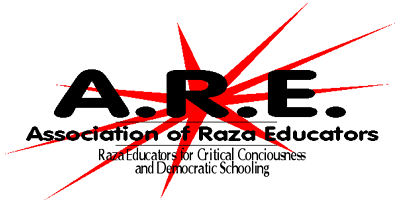


January-March 1999
Proposition is a Pointless and Damaging Law
The complexly worded conditions of the Unz initiative left many parents, teachers, and administrators searching for a clear interpretation of this pointless and damaging law. Schools scrambled to comply in a short time with the multiple requirements of the law. At this point in time, many traditional-year schools have managed to piece together programs to provide English learners with English language development, while year-round schools prepare for the January rush to provide thirty calendar days of English immersion and appropriate programs. All such programs must remain in accordance with the law, parent requests, and the results of assessment in order to be fully in effect (and effective).
According to Article two of the initiative, once students achieve "a good working knowledge" of English, they may be redesignated and/or mainstreamed into English classrooms. What does this mean for those students whose parents would like them to remain in a program that builds a foundation upon both primary and second language instruction? (Spanish and English) How can teachers and administrators (or at least those conscious of a students' legal right to bilingual education) ensure that such a program is made available?
The Waiver Process
Article three of 227 states: "The requirements...may be waived with: the prior [annual] written informed consent of the child's parents or legal guardian under [the following] circumstances: such informed consent shall require that said parents or legal guardian personally visit the school to apply for the waiver...under parental waiver conditions, children may be transferred to classes to where they are taught English and other subjects through bilingual education techniques..., individual schools in which 20 students or more of a given grade level receive a waiver shall be required to offer such a class; otherwise they must allow the students to transfer to a public school in which such a class is offered." (Section 310) This article is basically stating that schools must provide an alternative program as long as there are 20 parents at any grade level who request that their children be placed in an alternative bilingual program.
The difficulty lies beyond this maze of words that, if interpreted and understood correctly, could give students and parents the choice of bilingual education. We as educators know well that if the parents must visit the schools to complete the waiver process, then they must somehow be thoroughly informed of this right. The language of 227 and the attitudes and actions of those unwilling to provide for second language learners have created obstacles for parents and educators who support bilingual education for our children. Such obstacles are denying parents a choice, and denying children the right to an education founded on the principles of creating well-rounded and self-confident students.
The disparity and turmoil caused by 227
The children of California's schools are now experiencing very different versions of compliance. Santa Ana Unified School District accounts for 80% of the county's requests for waivers. Meanwhile (according to the Sacramento Bee), Garden Grove Unified had 12 requests, despite having 22,000 students classified as limited English. Such disparity could be a result of variable interpretations of the muddy wording of 227, or more likely the rights of parents and students are being blatantly ignored by some districts and upheld by others.
The negative impact on our children is and will continue to be tremendous and long term. Teachers and parents unaware of their rights and the steps they could take to ensure their rights may feel the usual frustration of being punished for wanting to maintain the primary language and culture of the students. The factors necessary to comply with 227 and at the same time provide English learners with a quality alternative program are many:
Districts are simply not doing enough. As educators, we can help more than just the students in our classrooms. We can help other educators who are also eager to uphold the rights of the members of their school's community. ARE is committed to helping inform teachers and parents of their rights regarding the waiver process, and hopefully any other situations that have become thorns in the sides of our children.
"A child's culture and language are the foundation upon which an appropriate education must be built."
The Urgency for Bilingual Special Education is Clear...
"A child's culture and language are the foundation upon which an appropriate education must be built. Building on a students acquired knowledge is fundamental to sound educational practice. The English language and Anglo cultural skills are actually additional material."
Bilingual Special Education is the use of the home language and the home culture, along with English, in an individualized program of special instruction for students. Bilingual Special Education is designed to provide for the maximum potential for learning using the student's cognitive knowledge.
There are many cases of English language learners in Special Education that have not been receiving adequate educational services. As parents and educators it is extremely important that everyone be informed about these issues.
Questions that should be asked:
We see so many of our students not succeeding in the schools today. This is even more evident among bilingual Special Education students; so many of which only sit in the back of classrooms like "zombies."
These are the facts:
Our responsibility is to inform our community as to our rights within the area of bilingual Special Education.
Excerpts from "California Association for Bilingual Education" Proposition 227 Bulletin - Implementation of Proposition 227 - What you should know.
What do the results of the elections tell us?
ALERT!
For more information contact CABE headquarters at 213/532-3850.
Prop. 227 is just one more attack against our communities:
What Happens when Public Policy and Anti-Mexican/Anti-Latino Politics Become One?
As conscious educators and community members, it is safe to assume that we know enough about history to remember what happens when public policy unites around opposing a specific nationality or ethnic group. When it happened in Europe it was called "the Holocaust." In Africa it was called "Apartheid." In the Americas it presented itself as "Indian Relocation" and "Chattel Slavery."
Obviously the world has changed, but these changes have not erased the ability of one group to oppress and exploit another. The clearest example of this is the Tijuana/San Diego border.
The Reality of the Mexicano/Latino Community is a Result of One Public Policy
"Operation Gatekeeper" is what the policy of keeping "illegal aliens" out of the United States is called now. Government agencies, politicians, and political analysts defend their policies under the title of "border enforcement." At least 350 men, women, and children have died as a result of this "border enforcement" in the San Diego area alone.
Within the borders of the United States Prop. 187, Prop. 209, Prop. 227, "Three Strikes," Welfare Reform, English Only, and Immigration Reform all fall within the same public policy framework.
Proposition 187 told all our students "You do not have the right to enter public schools for an education." This law was consequently blocked by the courts as "unconstitutional." Now Proposition 227 tells our students "You may have a right to show up to school, but we refuse to teach you anything."
We understand that the passage of these laws are not isolated events; they form part of an overall campaign against the Mexicano and broader Latino community. 187 and 227 attack the educational rights of the community, while Proposition 209 attacks our economic rights. Together, these laws severely compromise our civil and democratic rights.
Clearly, what we are seeing is a coordinated attack. This attack is specifically against all institutions, programs, legal protections, etc. that were originally designed to help our community build the internal economic and political infrastructure needed to provide for the needs of our people and defend the interests of our community.
These attacks have not ended. Among others, there are new laws being proposed that will dismantle Chicano Studies/Ethnic Studies. We can expect these attacks to continue until there is no longer any democratic space allowed our community. The only government agencies that will continue to offer their services to our people will be the Police Department, the Department of Corrections, and the Border Patrol. In fact, these are the only institutions in our barrios that seem to never run out of resources, and continue to grow at an incredible rate.
We are now forced to open our eyes to reality. Organization is the only alternative we have... Join the Association of Raza Educators!